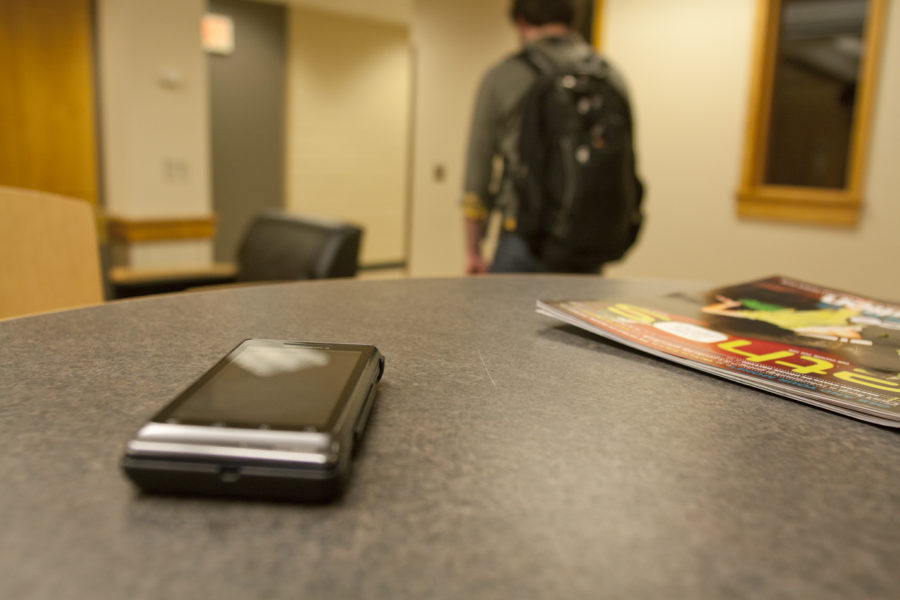Lost and found is a valuable student asset on campus
Photo Illustration: Bryan Langfeldt/Iowa State Daily
Cell phones are one of the most commonly misplaced items on campus.
February 23, 2011
David Hoffman’s nightmare started about three weeks ago on a Thursday afternoon. Hoffman, senior in software engineering, lost his phone while walking to the Memorial Union.
“I was pretty low in thinking, ‘Oh, my God, I’m not going to get my phone back,’ not for the phone but for the contacts,” Hoffman said.
He retraced his steps, returning to Gerdin and contacted the police department. After five days of searching, it was finally found.
In the Memorial Union as he was back tracking, an employee at the information desk told him about the campus’s lost and found website.
His phone was returned to him Feb. 1, after he posted a description of his missing phone and contact information to the site.
“[When they found my phone] it was like I was floating on air,” Hoffman said. “I am glad that I didn’t have to get a new phone and start over.”
Hoffman believes if students were aware of the lost and found resources on campus, students will be better prepared to cope in situations similar to his.
Each building on campus has its own lost and found, usually located in its main office. These resources will hold on to lost items for an undetermined amount of time before they’re sent to the overarching campus lost and found, located in Central Stores, in the General Services building.
Norman Hill is the director of Central Stores who manages all the things that are turned in to the lost and found.
Central Stores holds items such as keys, phones, iPods, watches, purses, backpacks, etc. Hill does what he can to return the items that are brought to his office.
“When phones aren’t locked, I usually call Mom and Dad,” Hill said. “People come in and send e-mails and rummage through things to reunite them with their stuff.”
The progress is much easier for Hill if students help themselves by utilizing the website, where everything that students lose and turn in is listed with a description of the item and contact information for the owner.
“I encourage people to post what they lose on the website,” Hill said. “If people find things, they should return it to Central Stores.”
There is a 90-day policy that limits the amount of time items are held by the lost and found services.
After 90 days most of the clothes go to the ISU surplus. The remaining items like electronics are kept locked in the office.
“If we can’t find a home for [the items], then they are considered abandoned,” Hill said.
People have to give a thorough description before they can receive their lost items.
“For an iPod, I will say give me your playlist or some downloads,” Hill said.
The departments hold on to things before they send it to Central Stores. Anything found by campus police is also taken to Central Stores.
While Hill waits for items to be claimed, he has a charger for all phones in his office.
“If can’t get in touch with [the person] within six months or so, we recycle the batteries and the phone.” Hill said. “We don’t give it away because there is too much information on them.”
Putting your name or I.D. number somewhere on your personal items allows owners to retrieve their belongings more easily, Hill said.
Parks Library keeps items at the circulation desk for about 30 days, before they send it to Central Stores. The library’s process is the same as Central Stores when it comes to identifying and contacting the person who lost the item, said Dan Shea, library assistant.
“The library gets a lot of flash drives because it is so small and people forget about them, and about a cell phone a week, if not more,” Shea said.







